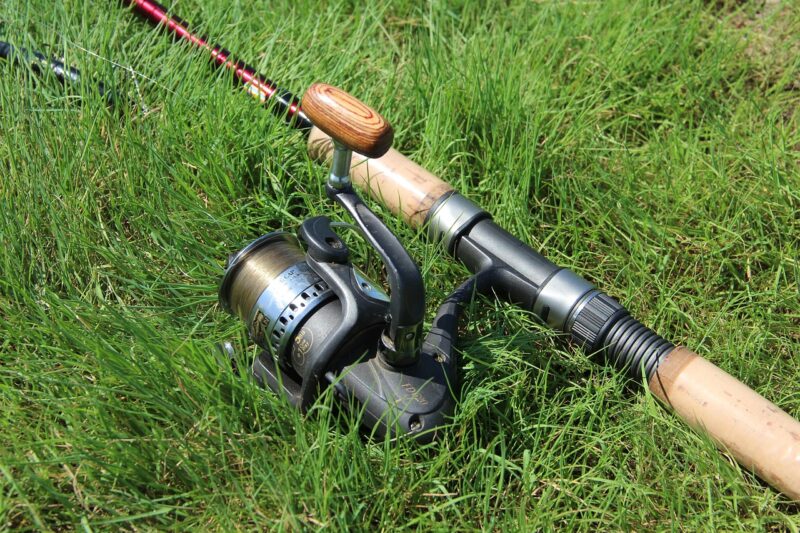Why Certain Fish Species Are More Difficult to Catch and Techniques for Success
November 12, 2024

Fishing is a time-honored sport enjoyed by millions around the globe, but not all fish are created equal when it comes to catchability. Understanding why certain fish species are more challenging to catch can enhance your fishing experience and increase your success rates. In this article, we delve into the factors that contribute to these challenges and explore the techniques that can help you land those elusive fish.
1. The Difficulty of Catching Certain Fish Species
Some fish species are notorious for being hard to catch, and this is often due to a combination of their behavior, habitat, and physiological traits. Here are some common reasons why you may struggle to catch certain species:
- Natural Behavior: Many fish species are known for their elusive nature. For example, species like the trout are highly cautious and may easily spook at the sight of fishing gear.
- Feeding Habits: Fish that primarily feed on small insects or crustaceans can be more difficult to attract with traditional bait. Species like panfish and bass often have specific feeding windows associated with weather conditions.
- Habitat Characteristics: Some fish inhabit areas that are difficult to access, such as those with dense vegetation or underwater structures. Fish like pike or muskie are known to hide in thick cover, making them harder to catch.
- Physical Traits: Certain species like the tarpon have unique physiological traits, like their strength and agility, allowing them to escape more effectively. Their acrobatic jumps and bursts of speed make them formidable opponents for anglers.
Understanding these factors can help you tailor your fishing strategy to better target these challenging species.
2. Techniques for Successfully Catching Challenging Fish Species
Now that we’ve established why certain fish are more difficult to catch, let’s explore some effective techniques that can increase your chances of success:
A. Choose the Right Gear
Using the appropriate fishing gear is crucial. Consider the following:
- Rod and Reel: Match your rod and reel to the fish species you’re targeting. Lighter gear works best for smaller species, while heavier equipment is needed for larger fish like tuna or swordfish.
- Bait Selection: Select bait that mimics the natural diet of the fish you want to catch. Experiment with live bait, artificial lures, and other enticements that attract various species.
- Line Strength: Use the appropriate line strength for the fish species you are targeting. Too thin a line may snap and too thick can scare off fish.
B. Employ Various Fishing Techniques
Different fishing techniques can be more effective based on the species and their habitat:
- Fly Fishing: Particularly effective for species like trout and salmon, fly fishing allows anglers to present bait in a delicate manner to avoid spooking the fish.
- Trolling: Trolling is a great technique for species such as bass and walleye that are known to roam. Using multiple lines can increase your chance of hooking a fish.
- Bottom Fishing: This method is ideal for catching species that dwell near the sea floor, such as grouper and snapper. Use heavier weights to keep your bait on the bottom where these fish feed.
C. Observe and Adapt to Conditions
Gathering and analyzing the conditions of your fishing environment can significantly improve your success rate:
- Weather Factors: Pay attention to weather conditions, as certain species are more active during specific times. Overcast days often yield better results for larger fish as they are more likely to venture out from cover.
- Water Temperature and Clarity: Fish are sensitive to temperature changes. Understanding the optimal temperature range for your target species can help you determine the best times to fish.
- Seasonal Behavior Patterns: Many fish species exhibit seasonal behavior changes that affect where they can be found. Familiarize yourself with the migratory and spawning patterns for effective targeting.
3. Understanding the Elusive Species: Case Studies
Analyses of specific fish species help to illustrate why tackling these challenges matters:
A. The Atlantic Salmon
Salmon are known for their rigorous migratory lifestyle, consistently battling upstream currents. Key techniques for success include:
- Use of Spinning Reels: They have great drag capabilities that are essential when reeling in a vigorous fish like salmon which often leaps out of the water.
- Time of Year: Early summer is prime season for fishing as it coincides with their spawning cycle.
B. The Legendary Tarpon
This species is considered one of the hardest to catch due to its fighting nature. Here are notable tips:
- Live Bait such as mullet or crabs often yield better results since tarpon are instinctively drawn to live prey.
- A Good Fishing Guide: Pairing up with a guide experienced in tarpon fishing will expose you to vital local insight and effective techniques.
C. The Mighty Muskie
Muskies are infamously known as the “fish of a thousand casts.” They are often found in heavily vegetated waters which makes them harder to catch. Techniques include:
- Casting Large Lures: Larger lures mimic their natural prey and are more likely to stimulate a bite.
- Patience is Key: Notoriously difficult to catch, anglers often require countless casts in a day to land a single catch.
Conclusion
Catching certain fish species can be a tremendous challenge, but understanding their behavior, habitat, and employing the right techniques can significantly increase your success. Remember, fishing is not just about catching fish; it’s about enjoying the journey, the thrill of the chase, and the peace that comes with being outdoors. Whether you’re targeting elusive trout in a mountain stream, aggressive tarpon in the ocean, or cunning muskies in freshwater lakes, gear up wisely, learn the habits of your quarry, and immerse yourself in the ever-rewarding world of fishing.
Happy fishing!








